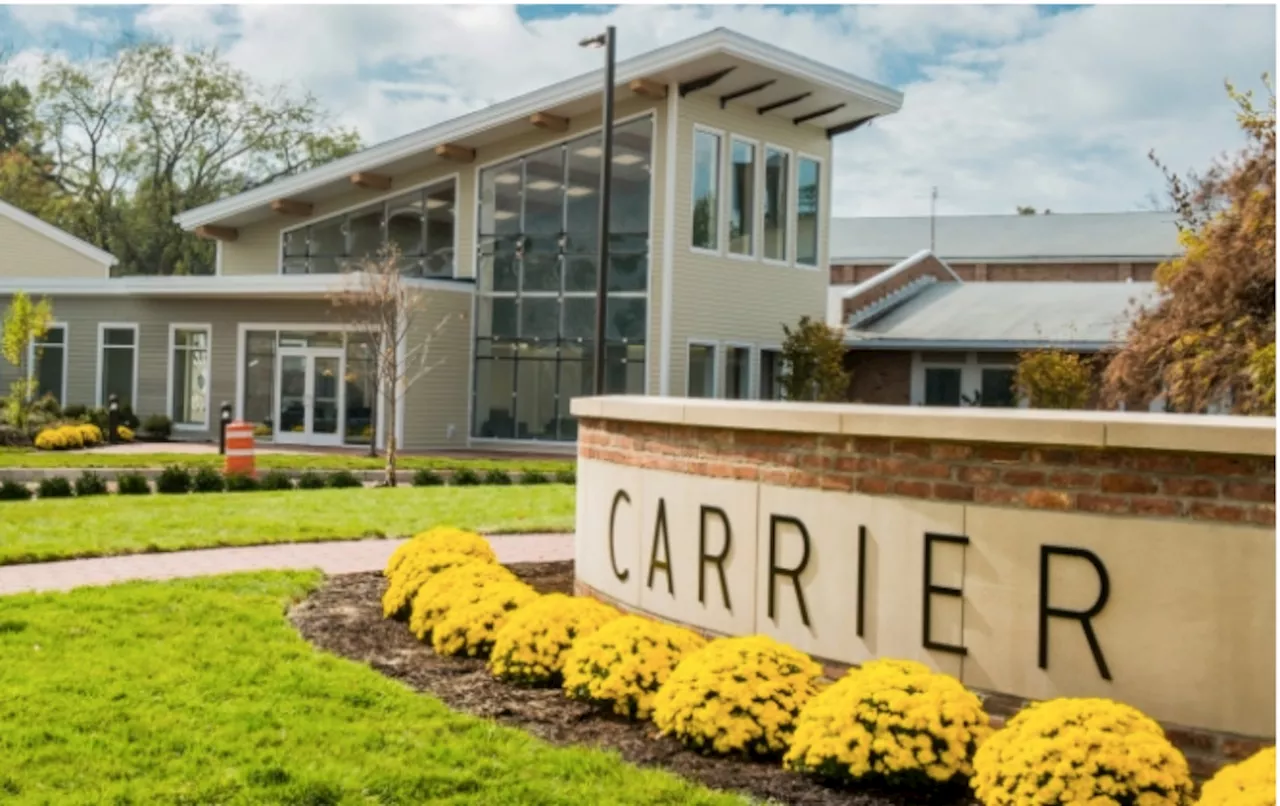New Jersey's mental health and addiction treatment agencies face closure due to uncompensated administrative burdens imposed by recent Medicaid changes. Unless immediate action is taken, thousands will lose access to vital care. Urgent funding is needed to stabilize the system and prevent a public health crisis.
New Jersey 's mental health and addiction treatment agencies are facing a grave crisis, with the risk of cutting urgently needed services. This isn't due to a lack of need, but rather the unintended consequences of the state's recent Medicaid changes. These changes have placed an excessive administrative burden on vital providers, demanding costly new tasks without providing the necessary funding to keep up.
If the situation remains unaddressed, these agencies might be forced to reduce services, lay off staff, or halt care for thousands of New Jersey residents who rely on them. The state's initial intention was commendable. Integrating behavioral health services into Medicaid managed care through New Jersey's 1115 Medicaid Waiver aimed to create a more streamlined and holistic care system. However, the reality has proven to be the opposite. Instead of improving efficiency, the integration has added an overwhelming amount of administrative steps. Providers, already stretched thin, are now navigating new credentialing processes, prior authorization rules, and complex billing systems, all while trying to fulfill their core mission of helping people.The problem extends beyond the added paperwork. Providers are expected to undertake these new requirements without any additional funding to cover the extra workload. Many mental health and substance use treatment organizations in New Jersey already operate on extremely tight margins. Inflation is driving up costs across the board, from employee healthcare to transportation, and Medicaid reimbursements fall 30-40% short of the actual cost of care. This precarious situation could lead to a system collapse. The consequences of these organizations struggling to stay afloat would be immense: fewer treatment options for people in crisis, increased strain on emergency rooms and law enforcement, and ultimately, higher costs for the state. This is especially concerning considering the significant progress New Jersey has made in addressing issues like the opioid crisis and expanding access to mental health care. Yet, all these gains could be reversed if the very providers responsible for delivering these services can't afford to continue. The hardest-hit communities will be those already facing challenges – low-income families, communities of color, and areas with limited access to care.The good news is that there's a solution if state leaders act swiftly. As Governor Murphy and the Legislature prepare the Fiscal Year 2026 Budget, they must prioritize immediate support for behavioral health providers before it's too late. The state must invest $43.2 million to increase provider rates and contracts by 8%. This action would unlock an additional $16.8 million in federal funding, providing essential financial relief. Raising the Children's Partial Hospital (PHP) rate to $112 per hour is crucial. The last increase was in 2024, but it still falls short of inflation. Allocating $5 million for recruitment and retention bonuses is also vital. Behavioral health workers are underpaid and overworked, leading to high turnover and workforce shortages that directly impact care.These steps will not only prevent providers from closing but will also help stabilize and strengthen the system for the long term. Investing in behavioral health now will prevent higher costs down the road – saving money on hospitalizations, criminal justice interventions, and other crisis-driven responses. New Jersey has demonstrated real leadership in expanding access to mental health and addiction treatment. However, good intentions are insufficient. Without the financial infrastructure to support it, the state's vision for integrated care will fail. We are prepared to collaborate with the state to find solutions, but time is running out. The people who rely on these services cannot afford to wait. Now is the time to act and ensure New Jersey's behavioral health system remains strong for the future
New Jersey Medicaid Behavioral Health Mental Health Addiction Treatment Funding Crisis Healthcare Public Health
United States Latest News, United States Headlines
Similar News:You can also read news stories similar to this one that we have collected from other news sources.
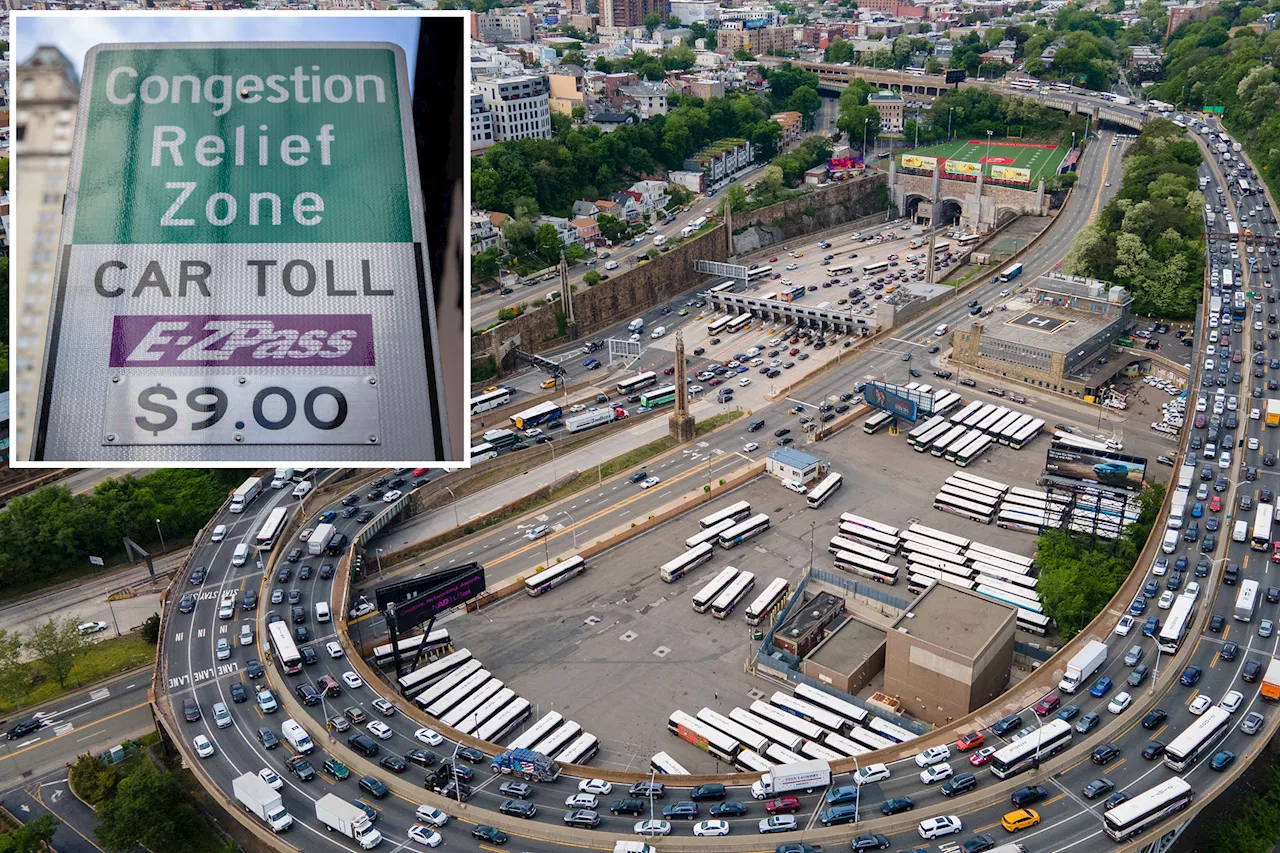 New York's $3 Discount for New Jersey Drivers in Congestion Pricing Dispute Falls ShortNegotiations between New York and New Jersey over congestion pricing broke down after New York offered a meager $3 discount for New Jersey drivers crossing into Manhattan. This sparked criticism from New Jersey officials, who deemed the amount insufficient and demanded a more substantial credit. The talks aimed to settle New Jersey's federal lawsuit challenging the congestion pricing fee.
New York's $3 Discount for New Jersey Drivers in Congestion Pricing Dispute Falls ShortNegotiations between New York and New Jersey over congestion pricing broke down after New York offered a meager $3 discount for New Jersey drivers crossing into Manhattan. This sparked criticism from New Jersey officials, who deemed the amount insufficient and demanded a more substantial credit. The talks aimed to settle New Jersey's federal lawsuit challenging the congestion pricing fee.
Read more »
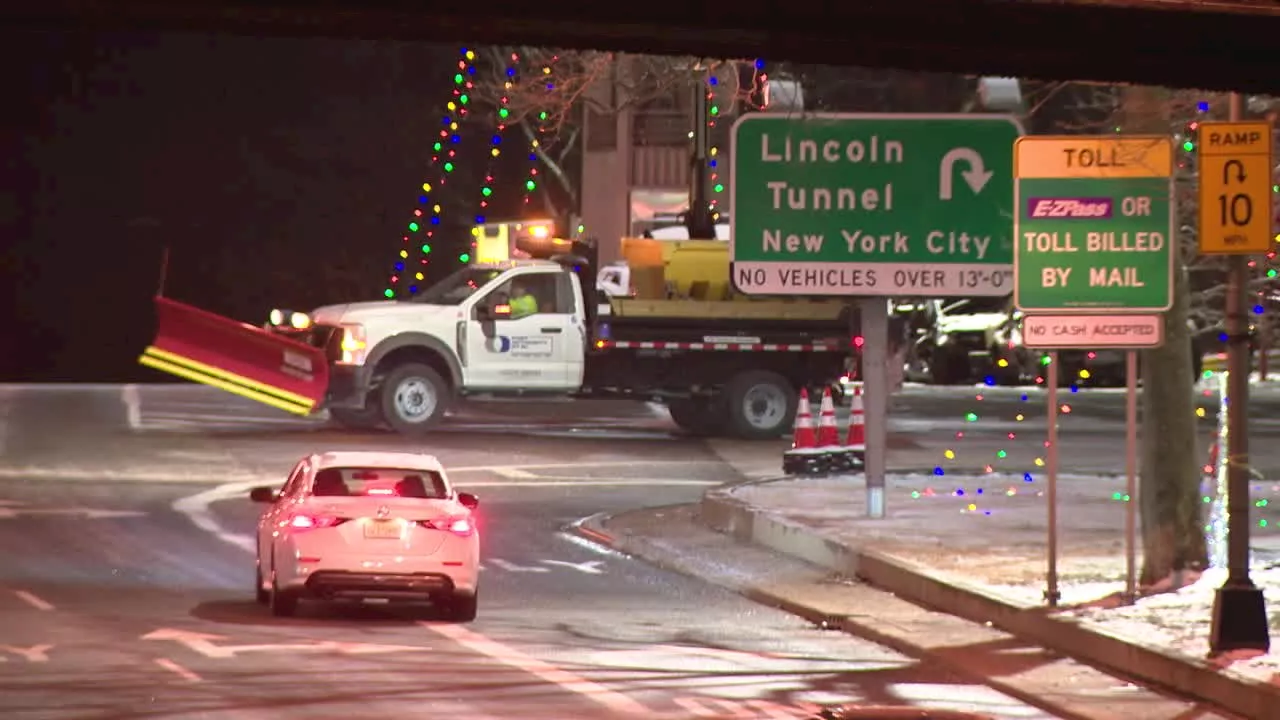 Reverse Congestion Pricing: Could New Jersey Fight Back Against NYC's New Toll?Jersey City Mayor Steven Fulop proposes a 'reverse congestion pricing' toll on crossings from New York into New Jersey, aiming to fund New Jersey's struggling mass transit system.
Reverse Congestion Pricing: Could New Jersey Fight Back Against NYC's New Toll?Jersey City Mayor Steven Fulop proposes a 'reverse congestion pricing' toll on crossings from New York into New Jersey, aiming to fund New Jersey's struggling mass transit system.
Read more »
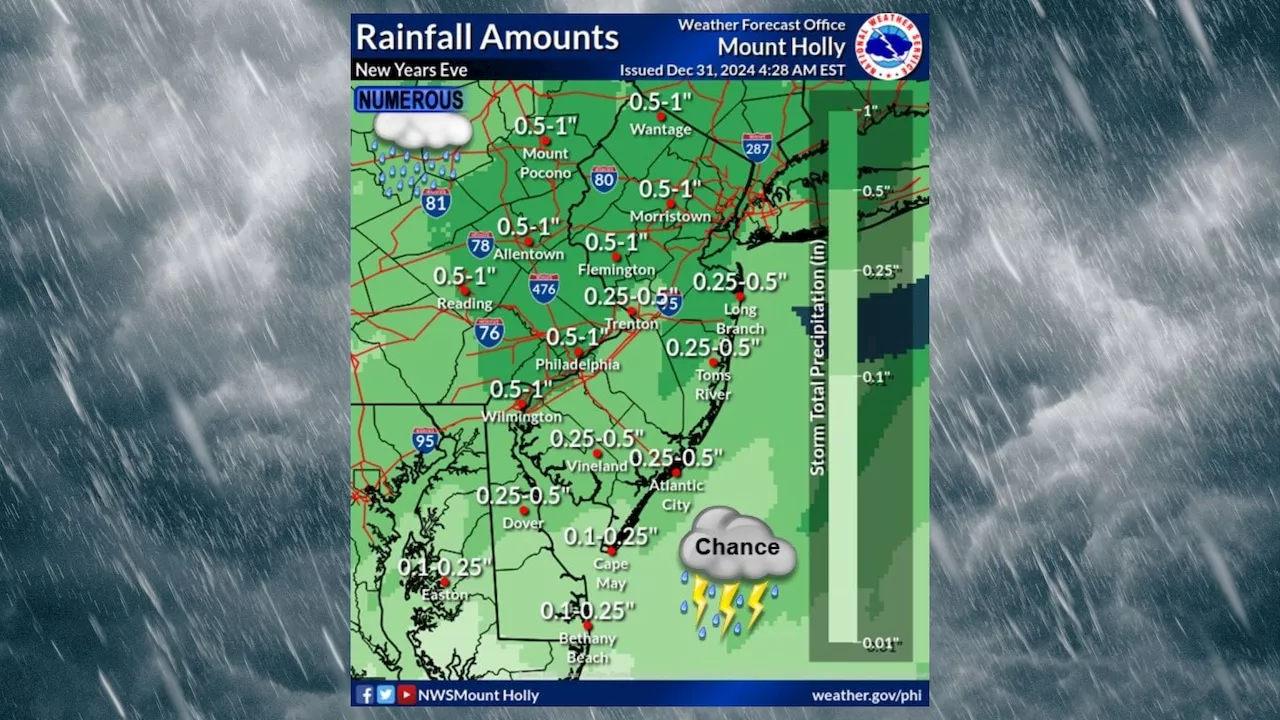 New Jersey Faces Rainy New Year's EveNew Jersey residents may experience rain and thunderstorms as they ring in the New Year.
New Jersey Faces Rainy New Year's EveNew Jersey residents may experience rain and thunderstorms as they ring in the New Year.
Read more »
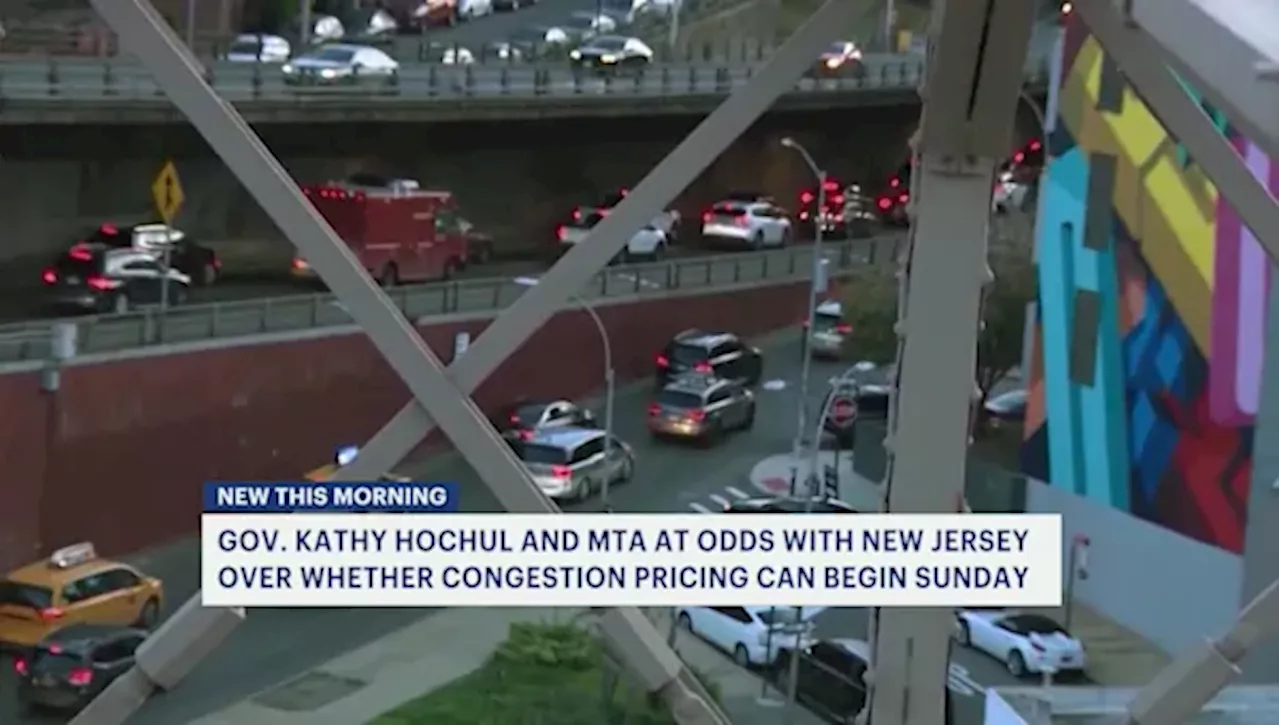 New York and MTA feud with New Jersey over congestion pricingThe plan aims to reduce traffic congestion in Manhattan's central business district by charging drivers a fee to enter the area.
New York and MTA feud with New Jersey over congestion pricingThe plan aims to reduce traffic congestion in Manhattan's central business district by charging drivers a fee to enter the area.
Read more »
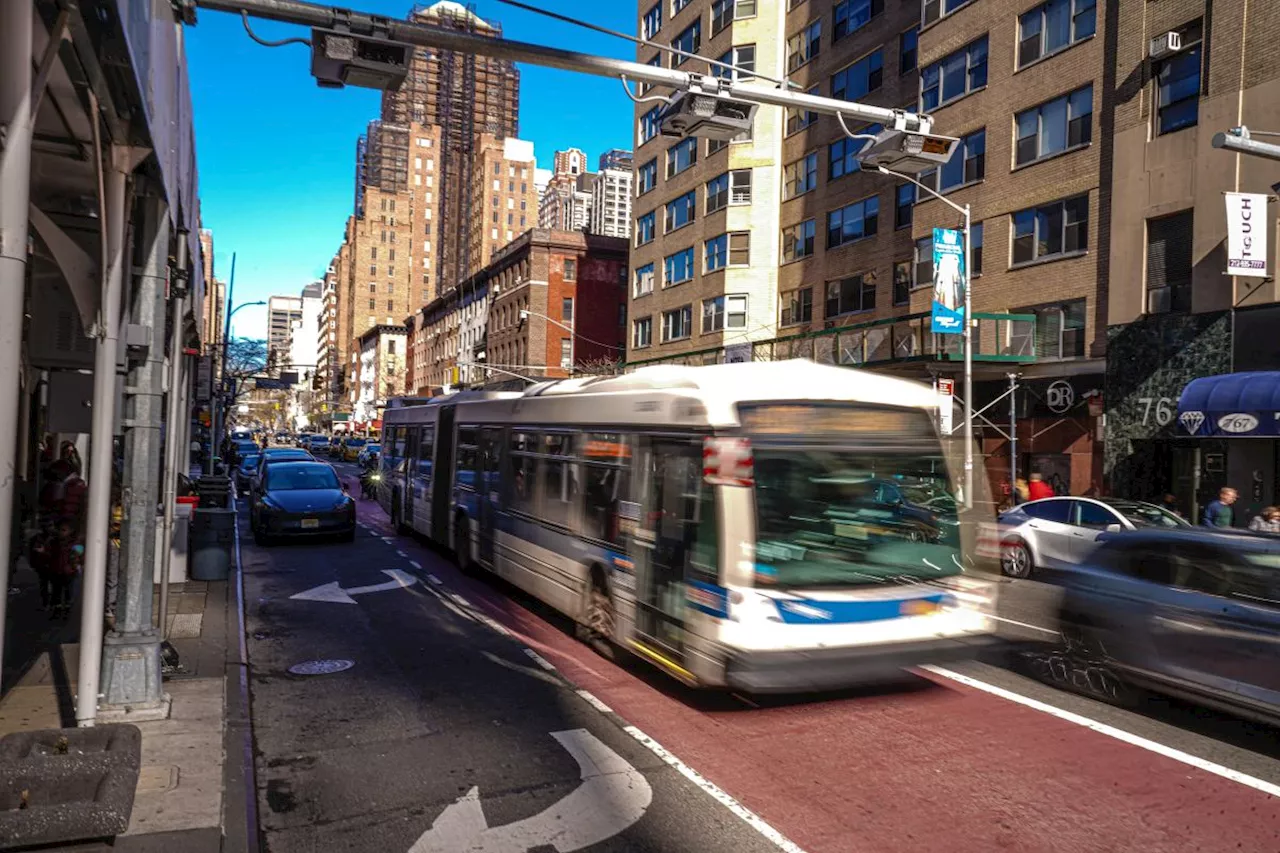 New York Congestion Pricing Wins Court Approval, New Jersey ObjectsA New York judge ruled in favor of the city's congestion pricing plan, prompting celebrations from New York officials. However, New Jersey representatives voiced strong opposition, arguing that the program would unfairly burden residents.
New York Congestion Pricing Wins Court Approval, New Jersey ObjectsA New York judge ruled in favor of the city's congestion pricing plan, prompting celebrations from New York officials. However, New Jersey representatives voiced strong opposition, arguing that the program would unfairly burden residents.
Read more »
 Minimum Wage Rises in New Jersey, New York, and ConnecticutMinimum wages in New Jersey, New York, and Connecticut are all set to increase in 2025. New Jersey's minimum wage will rise to $15.49 per hour, New York's will increase to $16.50 in New York City, Long Island, and Westchester, and $15.50 in the rest of the state, and Connecticut's will jump to $16.35 per hour. These increases are part of ongoing efforts to align minimum wages with the cost of living and ensure economic fairness for workers.
Minimum Wage Rises in New Jersey, New York, and ConnecticutMinimum wages in New Jersey, New York, and Connecticut are all set to increase in 2025. New Jersey's minimum wage will rise to $15.49 per hour, New York's will increase to $16.50 in New York City, Long Island, and Westchester, and $15.50 in the rest of the state, and Connecticut's will jump to $16.35 per hour. These increases are part of ongoing efforts to align minimum wages with the cost of living and ensure economic fairness for workers.
Read more »
